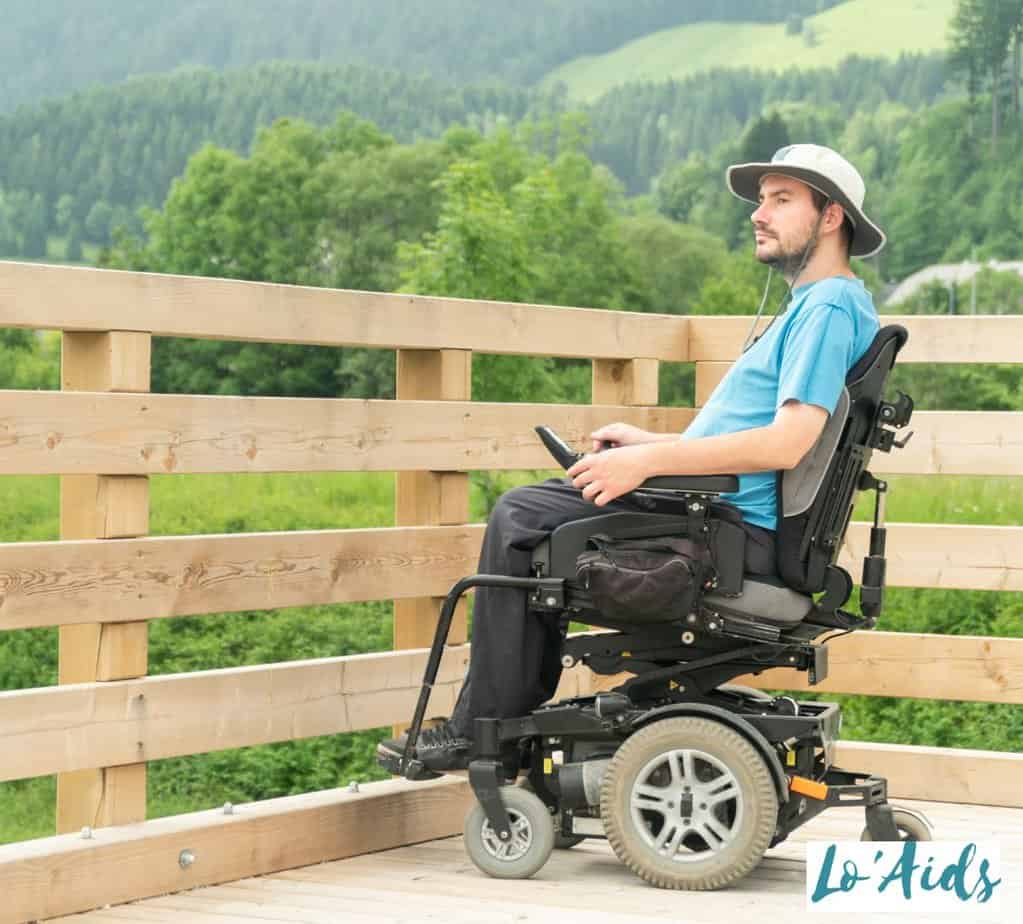Understanding Aging, Mental Health Shifts and the Effects of Limited Mobility can be difficult. Here’s what you need to know…
As a caregiver and researcher, and through firsthand patient accounts, collaborations with leading research institutions, and countless sleepless nights of analysis, I’ve explored the winding roads of the aging brain.
In this illuminative guide, you’ll learn about the biological effects and their impacts on your mental health and mobility…
Keep scrolling to learn about aging and secrets to reverse its effects today!
Table of Contents
Key Takeaways
- Aging, while a natural process, brings unique challenges that impact mental and physical well-being.
- Limited mobility can lead to mental health issues, exacerbating feelings of isolation and loneliness.
- These challenges can be mitigated with the right interventions, knowledge, and support.
Deciphering the Interplay of Aging, Evolving Mental Health, and Mobility Limitations
As you age, your biology undergoes fundamental shifts, such as cellular wear and reduced energy production. This not only influences your physical and mental health but also changes your daily needs and comforts, like the requirement for aids such as sleeping chairs for the elderly.

Let’s explore the 5 biological factors of aging…
5 Biological Factors of Aging and Their Impact
1. Cell Wear and Tear:
Each time a cell divides, its DNA can get slightly damaged.
Over time, these minor damages can accumulate, leading to cells not working as efficiently as they once did.
2. Shortening of Telomeres
Our cells have something similar called telomeres that protect our DNA.
But with age, these telomeres become shorter, exposing our DNA and potentially leading to cell aging or malfunction.
3. Slowing Down of Repair Mechanisms
Your body has its repair crew that fixes any damage in your cells.
But as you age, this crew (or the mechanisms to repair) might not work as efficiently, leading to wear and tear in tissues and organs.
4. Decrease in Cell Flexibility
Children are more flexible and able to touch their toes without thinking.
Similarly, cells also lose their flexibility with age, affecting their ability to function in various ways.
5. Energy Production Slows
The body’s cells have little energy factories called mitochondria.
With age, these can become less efficient, meaning our cells might not have as much energy as they did when we were younger.
But aging also brings with it mental difficulties. Let’s skip ahead…
3 Mental Implications of Aging: The Mind-Age Connection
1. Unbalanced sense of self
Aging affects each person uniquely, and among the many factors that transform mental health, a decreased sense of self and abilities comes to mind [1].
One of the profound challenges many face is dealing with a changing sense of identity and self-worth.
This shift often stems from changes in physical abilities, such as the need for aids like a narrow walker for small doorways, professional identities, or societal roles that were once clear but may become blurred with time.
Additionally, as one confronts the limitations of age, there can be a sense of loss, leading to questions about one’s worth and place in the world.
This reflection, while natural, can have implications on mental health, emphasizing the importance of understanding and addressing this evolving sense of self.
2. Mental Health Issues

The National Institute on Aging report elucidates how this dance heavily affects mental health with time [2].
They’ve found that as many people hit their golden years, their chances of encountering mental health issues, including conditions like depression and anxiety, increase substantially.
In addition, Han et al.’s
“Psychosocial factors for influencing healthy aging in adults in Korea” study highlights the role of several psychological factors in aging, such as perceived health status, depression, self-esteem, ego-integrity, leisure activities, and loneliness [3].
3. The Quest for Ego-Integrity
As described by Erikson’s psychosocial developmental theory, ego-integrity is a culmination of psychological well-being in old age.
Achieving this state, which encapsulates the assimilation of your life experiences, is a significant milestone that can influence the perception and reality of healthy aging.
Think of it as your mind trying to keep pace with a symphony that’s suddenly changed tempo but not necessarily having the sheet music to follow along.
And with age comes mobility issues (see next!)…
3 Mobility Impacts of Age
1. Physical Dynamics
Untreated mobility issues can be adverse, leading to social isolation, loneliness, and plummeting quality of life. But it doesn’t end there.
It also adds an extra burden on the mental health. Less movement can mean more time for our minds to dwell on the downsides, adding another layer of complexity to the aging process.
2. Neurological Decline
The aging process affects our nervous system, leading to a loss of neurons in both the brain and its connecting pathways to muscles.
This compromises signal processing and strength, affecting not only activity but also the quality of movement.
3. Reduced Independence
As the ability to move and the quality of movement diminish, there’s a potential for reduced independence.
This transition can significantly impact the individual’s quality of life, leading to increased dependence on others or assisted living environments.
Let’s discuss ways of combating aging & learn some strategies…
How To Combat Aging: 2 Pivotal Steps
Alright, it might seem like we’re in a tight corner hemmed in by a menacing maze, but the good news?
There are some pretty rad solutions to hack this labyrinth.
Regular physical exercise, a healthy diet, ample sleep—I know, it sounds like that same old tune, but these pillars hold up the mental health edifice.
#1 Use Physical Aids
To tackle the mobility issues, there are nifty contrivances called physical aids.
These aren’t just clunky signifiers of old age but the batmobile for seniors grappling with mobility issues.
Specialized canes, walkers, wheelchairs, and even weight gloves for hand tremors, among others, are tools in the arsenal that can help our golden-aged surfers ride the wave with a little more flair.
#2 Speak To A Therapist
In an interview with The New York Times, psychologist Dr. Michelle Seligson stated that therapy is about your problems and learning tactics to deal with them.

This couldn’t ring truer. Therapy—whether physical, occupational, or psychological—plays a starring role in the health narrative of older people.
It’s like having a compass in the increasing complexity of advancing age, guiding individuals through the foggy patches and onto smoother paths.
Unraveling the complexities and idiosyncrasies of aging is like trying to decode an age-old cipher.
Still, with careful observation, adequate aid, and a healthy dose of optimism, it doesn’t have to be an uphill battle.
This isn’t just a dance with time—it’s an intricate ballet we all inevitably become a part of. Some might say it’s more of a rite of passage.
And like most rites of passage, it’s a mixed bag of trials and rewards, apprehensions and affirmations, steps back but many more steps forward.
Worried about the negative effects of aging? See this video for more tips & lifehacks:
NEXT: Skip to the frequently asked questions & discover more aging-related impacts…
FAQs
1. What is the primary link between aging and mental health?
Aging can influence the onset of specific mental health disorders due to biological changes, isolation, or existing medical conditions.
2. How does limited mobility exacerbate mental health issues?

Restricted movement often results in social isolation and dependence, leading to feelings of loneliness and depression.
3. Are there effective strategies to combat the challenges of aging?
Yes, a combination of regular physical activity, mental exercises, social interactions, and medical interventions can be highly effective.
Conclusion
In Understanding Aging, Mental Health Shifts, and the Effects of Limited Mobility, it’s evident that the journey can be complex and challenging.
However, with the proper knowledge, support, and interventions, one can age gracefully, maintaining both mental and physical well-being.
This guide aims to empower and enlighten, ensuring the golden years are truly golden.
Go ahead and comment, and let me know what you think. As always, I’m happy to hear more about your experiences!
Until next time…
Resources
1. Science U of H at MF, Program HN. Older Adulthood: The Golden Years. pressbooks-devoerhawaiiedu [Internet]. 2017; Available from: https://pressbooks-dev.oer.hawaii.edu/humannutrition/chapter/older-adulthood-the-golden-years/
2. Mental and emotional health [Internet]. National Institute on Aging. Available from: https://www.nia.nih.gov/health/topics/mental-and-emotional-health
3. Han K, Lee Y, Gu J, Oh H, Han J, Kim K. Psychosocial factors for influencing healthy aging in adults in Korea. Health and Quality of Life Outcomes [Internet]. 2015;13:31. Available from: http://www.ncbi.nlm.nih.gov/pmc/articles/PMC4367838/






As someone who is caring for an aging parent, this article really resonated with me. There are so many points here that are familiar to me. Thanks!
This is a great article. Lots of really good info. Its do good to highlight mental health in a way that encourages support.
I know it’s not easy to age. I also know in a blink of an eye I will be here and it’s scary.
As my mom would say, “Getting old sucks!” This is helpful to understand what she goes through.
All I can say is becoming older is no joke. I understand this post on so many levels and aging can surely shift a lot in your life.
This article is full of useful information. If we are fortunate, we will all get older and need to know the information you shared here.
I can see how these things are all tied together and have impacts on health and wellness as we age. I have often seen loss of mobility leading to a more end of life stage.
I’ve got mobility issues and I’m only 47 years old. It is very taxing in the body especially mental health. It’s hard knowing you can do something you once enjoyed.
The mental effects of limited mobility due to aging makes a lot of sense and I like how this post addresses the majority of them!
Thank you so much for the informative health and wellness post. I am working on getting into to shape to try and keep myself mobile and physically active for as long as I can…… as being and staying physically active is the key to staying young. Also… diet plays a huge role too…. …. working on eating healthier too and taking supplements.
I am so scary to age. I would like to try to age well and to be independent and healthy.
It’s an important topic that often doesn’t get the attention it deserves. Your insights and tips are truly valuable for anyone dealing with these challenges or supporting loved ones who are.
Knowing this information is going to be so helpful when it comes to putting in place support for our ageing parents, thanks so much